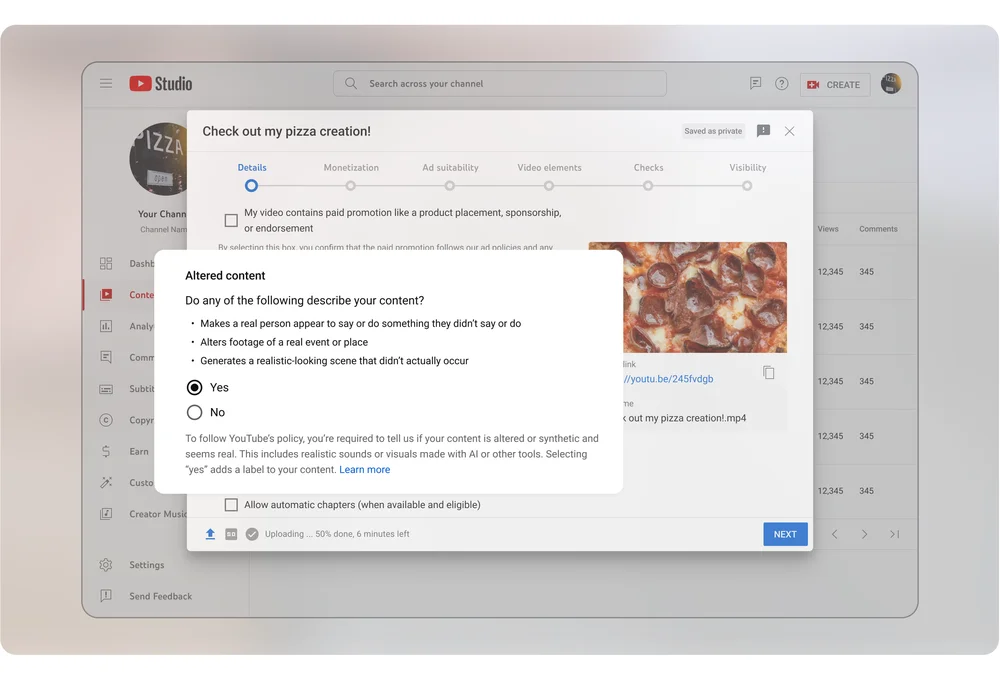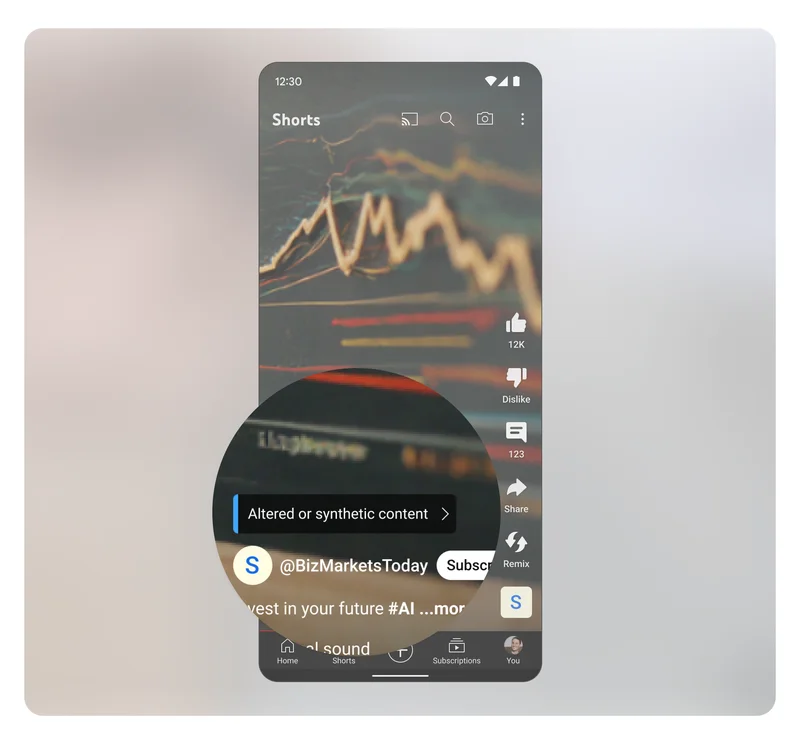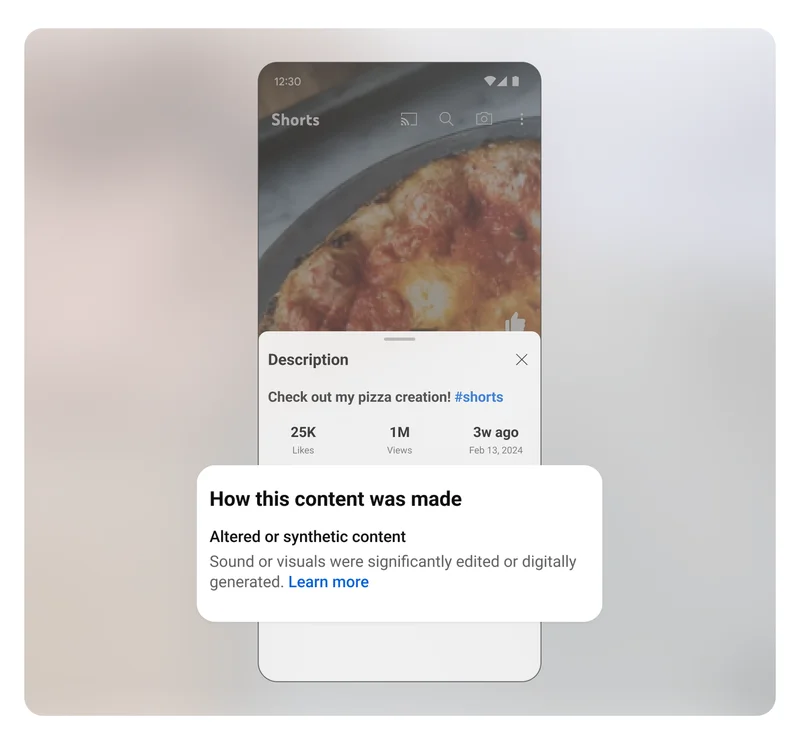YouTube requires creators to disclose use of AI in realistic content

The screen for YouTube content creators to disclose the use of artificial intelligence to alter any realistic content. YOUTUBE/Handout
April 14 (ZFJ) — YouTube is requiring creators to disclose when realistic-appearing content—anything that can easily be mistaken for a real person, place, scene, or event—has been generated or altered using artificial intelligence, announced the video platform on March 18.
Examples provided by YouTube of content requiring disclosure include digitally replacing a person’s face, synthetically generating a person’s face, making it appear as if a real building caught fire, altering a real cityscape to appear differently, and realistically showing a fictional tornado moving toward a real town.
YouTube will not require creators to disclose the use of AI for content that is clearly unrealistic, animated, includes special effects, or used AI for production assistance.
Examples of content not requiring disclosure include someone riding a unicorn through a fantasy world, color adjustment, lighting filters, background blur, vintage effects, and beauty filters.
 An example of an artificial intelligence alteration disclosure label on a video. YOUTUBE/Handout
An example of an artificial intelligence alteration disclosure label on a video. YOUTUBE/Handout
The label will appear in the expanded description of most videos. Videos that deal with sensitive topics like health, news, elections, and finance will have a more prominent label on the video itself.
“The new label is meant to strengthen transparency with viewers and build trust between creators and their audience,” YouTube wrote on its blog.
 An example of an artificial intelligence alteration disclosure in a video’s description. YOUTUBE/Handout
An example of an artificial intelligence alteration disclosure in a video’s description. YOUTUBE/Handout
YouTube is working on enforcement measures for creators who consistently choose not to disclose AI involvement. The platform says that it may add a label to videos when the creator has not disclosed if the content may be confusing or misleading.
YouTube added that it is working on an updated privacy process for people to request the removal of AI-generated content simulating their face and voice.
References
- YouTube - How we’re helping creators disclose altered or synthetic content - https://blog.youtube/news-and-events/disclosing-ai-generated-content/ (ARCHIVE)
